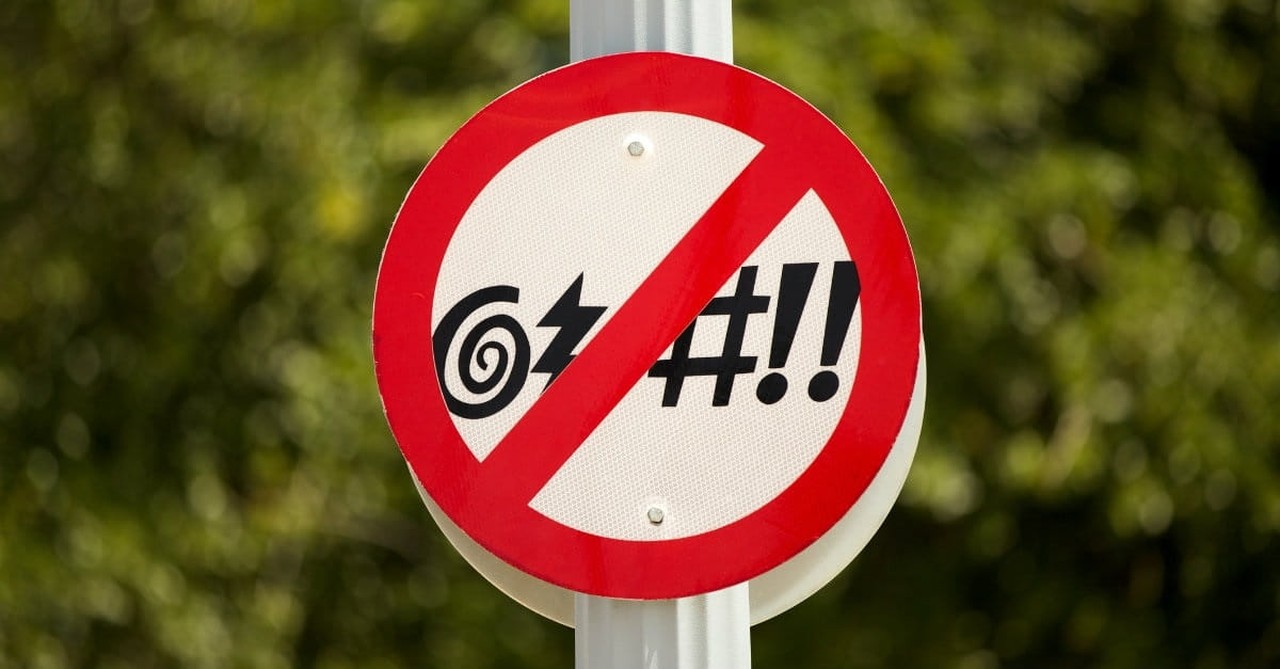9 Things Christians Should Know about Profanity

What differentiates one word from another – making one word a profane word while another is considered normative? Why is one “four letter word” different from another one? It’s not always based on the precise definition of a word. Instead, it’s based on how that word has been used in the culture.
This article originally appeared on DeliveredByGrace.com. Used with permission.
Josh Buice serves as the Pastor of Pray’s Mill Baptist Church located in Douglasville, Ga. He and his wife Kari have four children (Karis, John Mark, Kalli, and Judson). He earned his M.Div. and D.Min. in expository preaching from the school of theology at The Southern Baptist Theological Seminary. He blogs regularly at Delivered By Grace. DBG is a theology blog that focuses on theology, SBC, preaching, the church, and many issues within the Christian life. You can also follow him on Facebook and Twitter @JoshBuice.
Image courtesy: ©Thinkstock/RalphRenz
1. Profanity abuses vocabulary.

1. Profanity abuses vocabulary.
SLIDE 1 OF 9
Grammar matters. How we employ vocabulary is important in spoken word conversations, social media conversations, and in more formal written forms. The use of profanity often involves ripping a word out of its context and intended usage. For instance, it’s possible to take a word intended to convey a really dark and horrid meaning and use it for something that’s far less worse than its original context. This happens when people use the word hell in the improper manner. When people say, “I had a hell of a time last night at the party” they’re intending to mean that they had a really good time. We can be sure of one thing, hell will not be a fun or delightful place for anyone to find themselves.
To be damned is a really horrible thing. To consider what it means to be damned by God is a bit overwhelming just by looking at the vocabulary words often associated with the judgment of God in Scripture (agony, darkness, fire, smoke, punishment, torment, weeping, gnashing of teeth, pain, and more). To be damned by God is to be cut off and sentenced to the eternal flames of hell where a sovereign God unleashes His holy wrath upon guilty sinners. Therefore, to use the word damn in a slang manner in response to accidentally spilling your glass of water at the supper table is to completely miss the true meaning of the word. This misuse takes something like the damnation of sinners which is so woefully beyond comprehension and raises it up to the level of spilling a glass of water at the supper table.
2. God's name is not casual.

2. God's name is not casual.
SLIDE 2 OF 9
One additional example would be the way in which people use the name of God in vain through common everyday conversations. This is a common error that occurs when a person takes the name of God and flips it so that it’s used in a negative manner. People do this often with the name of God. When someone is frightened and they exclaim, “O Jesus, that scared the life out of me”— that individual is usually speaking to someone other than Jesus when making that statement. In other words, when one friend makes that statement while speaking to another friend, the name of our Lord (a glorious name that’s above every name – Acts 4:12) is being improperly substituted as a slang term. This same type of thing can show up in the use of text messages where people use OMG to refer to something really bad or really funny, when that certainly isn’t the proper usage of God’s name (Ex. 20:7).
Whatever your opinion is regarding the use of profanity, it’s clear that profane words often distort the proper definition and intended use of a word. It would be wise to make sure we’re using vocabulary properly in order to preserve the true meaning of such words.
Image courtesy: ©Thinkstock/moodboard
3. Profanity provides a cultural identity.

3. Profanity provides a cultural identity.
SLIDE 3 OF 9
Beyond the abuse of vocabulary is the cultural identity that’s attached to the use of profanity. This is where we move beyond morality to Christianity. The followers of Christ have been called out of darkness and into the marvelous light of God’s grace (1 Pet. 2:9). We should strive to base our lifestyle decisions on Scripture and move beyond the realm of cultural morality. Therefore, when we teach our children to refrain from using swear words (cuss words, profanity), we typically try to teach them why based on Scripture—not just because mom and dad said it.
Image courtesy: ©Thinkstock/monkeybusinessimages
4. Christians should seek to be identified with Christ rather than the world.

4. Christians should seek to be identified with Christ rather than the world.
SLIDE 4 OF 9
Romans 12:2 says, “Do not be conformed to this world, but be transformed by the renewal of your mind, that by testing you may discern what is the will of God, what is good and acceptable and perfect.”
Image courtesy: ©Thinkstock/Hemera Technologies
5. Christians should not be people who use filthy or foolish language.

5. Christians should not be people who use filthy or foolish language.
SLIDE 5 OF 9
Notice that Paul places this this warning in the same context where he issues warnings against sexual immorality. Ephesians 5:4 says, “Let there be no filthiness nor foolish talk nor crude joking, which are out of place, but instead let there be thanksgiving.”
Image courtesy: ©Thinkstock/STUDIOGRANDOUEST
6. Christians should maintain a certain appearance that honors Christ.

6. Christians should maintain a certain appearance that honors Christ.
SLIDE 6 OF 9
Titus 2:10 says, “not pilfering, but showing all good faith, so that in everything they may adorn the doctrine of God our Savior.” On this subject, see also 1 Thess. 5:21-22.
Image courtesy: ©Thinkstock/Brand X Pictures
7. Christians should not be rude people.

7. Christians should not be rude people.
SLIDE 7 OF 9
1 Corinthians 13:4-7 reads, “Love is patient and kind; love does not envy or boast; it is not arrogant or rude. It does not insist on its own way; it is not irritable or resentful; it does not rejoice at wrongdoing, but rejoices with the truth. Love bears all things, believes all things, hopes all things, endures all things.”
Image courtesy: ©Thinkstock/monkeybusinessimages
8. Christians are called to build people up with language rather than tearing down with corrupt word choices.

8. Christians are called to build people up with language rather than tearing down with corrupt word choices.
SLIDE 8 OF 9
Ephesians 4:29 says, “Let no corrupting talk come out of your mouths, but only such as is good for building up, as fits the occasion, that it may give grace to those who hear.”
Image courtesy: ©Thinkstock/JHershPhotography
9. Children must be taught to pursue holiness.

9. Children must be taught to pursue holiness.
SLIDE 9 OF 9
In our home we have a profanity filter on our television that (most of the time) prevents foul language from entering our living room. It’s not that Kari and I are seeking to be overly protective of our children or sheltering them from the real world. In fact, the propensity to use foul language is certainly in our children from conception, they simply haven’t learned the grammar until they grow and develop their vocabulary.
From time-to-time, my children will tell us that one of their friends used a “bad” word. We as parents try to explain why this is not wise and then point them in the right direction from a biblical context. Our goal is not straight and narrow moralism. Many people go to hell everyday who were morally decent and spoke with a clean tongue. We want so much more for our children than acceptable morality. We want them to grow to love Christ and to reflect the love and glory of Christ – not just with their worship and service, but also with their choice of vocabulary. We want our children to pursue holiness rather than the crudeness of our culture. While we know that the tongue cannot be tamed (Jm. 3:8), it’s our duty as Christians to exemplify a life that honors Christ, and that includes the way we speak. We must remember, our choice of language reveals much about the contents of our heart (Lk. 6:45).
Philippians 4:8 – Finally, brothers, whatever is true, whatever is honorable, whatever is just, whatever is pure, whatever is lovely, whatever is commendable, if there is any excellence, if there is anything worthy of praise, think about these things.
Content taken from the article, Is It Sinful to Use Profanity?, written by Josh Buice. To read the text version please click the link.
Image courtesy: ©Thinkstock/Stockbyte
Originally published May 03, 2017.









